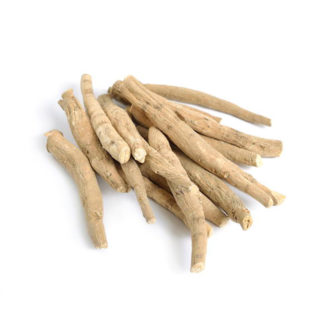Ashwagandha, also known as “Indian Winter cherry” or “Indian Ginseng,” is a popular herb used in traditional Indian medicine (Ayurveda). The short, tender perennial shrub is an evergreen from the Solanaceae or nightshade family. This herb has grown in popularity recently and is most commonly used for stress relief and to improve general health. Ashwagandha is often found in formulations prescribed for stress, strain, fatigue, pain, skin diseases, diabetes, gastrointestinal disease, rheumatoid arthritis, and epilepsy. It is also used as a general tonic to improve energy levels, general health, and longevity.
Ashwagandha’s root powder is most commonly used and contains chemicals that might help calm the brain, reduce swelling, lower blood pressure, and alter the immune system. Since ashwagandha is traditionally used as an adaptogen, it is used for many conditions related to stress. Adaptogens are believed to help the body resist physical and mental stress. During stressful moments, the cortisol levels in your body become elevated, and this causes your heart to pump harder and faster. Research has shown that ashwagandha can reduce the stress response by helping to normalize cortisol levels.
In vitro studies suggest that ashwagandha has neuroprotective and anti-inflammatory properties which may protect against cartilage damage in osteoarthritis. Some lab studies show that it can slow the growth of cancer cells, but this effect has not been observed in humans.
Ashwagandha Uses
- Anxiety
- Stress
- Fatique
- Joint pain
- Diabetes Treatment
- Rheumatoid arthritis
- Sleep
Side Effects of Ashwagandha
- Nausea
- Diarrhea
- Headache
- Drowsiness
- Stomach irritation
Contraindications Related to Ashwagandha
- Ashwagandha may increase testosterone levels, and should therefore be avoided in patients with hormone-sensitive prostate cancer.
- Patients who take benzodiazepines, anticonvulsants, or barbiturates should avoid ashwagandha due to potential sedative and GABAnergic effects.
- Pregnant women should avoid ashwagandha as it may induce abortion at higher doses.
Origins of Ashwagandha
India, Africa and parts of the Middle East
My Favorites
- No Favorites Yet

